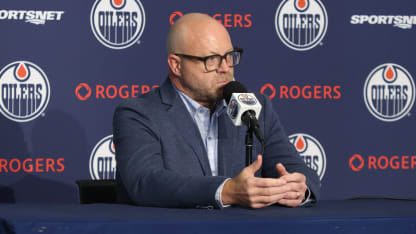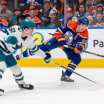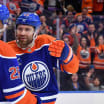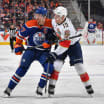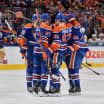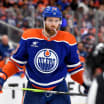Bowman on still being active in Free Agency despite the start of Training Camp on Wednesday:
“Well, the cap is always a big factor in our decisions. We are under the cap right now and we want to remain that way. Our goal is to try to accrue cap space so that we have the flexibility in-season to be able to make an addition. So there's a lot that happens in the next three to four weeks with waivers, with players that are currently unsigned. As well as around the league, there are going to be teams where players emerge in the next couple of weeks and look like they're better than teams expected, which makes other players available.
"Part of our job in the next month is to evaluate the options that we have, both internal and external, and it's an ongoing process. So I guess it’s hard to make a game plan when we’re in that process. We want to give the players who are here and signed a chance to show us what they can do. But I wouldn't be doing my job if I wasn't looking around to see if there are other players that could make our team better. So we know that's an area we need to focus on over the next few weeks heading into the regular season. We'll just see how it all plays out."
Bowman on adding more bodies to his Player Development department since taking the position as Oilers GM in late July:
“Yeah, I think Player Development is something that is of the utmost importance to us, both in the short term and in the long term.
"I think it does take some time before you can see the fruits of that labour because when you draft a player and they're part of your organization, oftentimes they're not going to actually help your NHL team for two, three or four years. But the Player Development people come in and they start working with the player from the day they're drafted. The whole reason you do that is you want to try to accelerate that progression, so instead of the player taking three years to make it, we get them there in two years or a year-and-a-half and they're actually ready to be an NHL player.
"Each player's timeline is a little bit different, but I think it takes focus and we had our full group in Penticton to get to know these players. And the way I like to explain it for our prospects is they all have coaches everywhere they are, whether they're in Bakersfield or they're in college or junior or they're in Europe, so they've got their coaches that are trying to help them improve our Player Development. Coaches are the personal coaches for those players because from my experience, and this is a bit counterintuitive, but often with these junior teams or college teams, the best players sometimes get the least amount of attention because the coaching staffs on those organizations are sometimes limited and they're focused on the bottom out of the lineup to try to get those players to be good enough to compete. And sometimes, the best players don't get as much coaching as you would like.
"That's where we come in. We have our Player Development coaches and they're like a personal coach, so they'll watch every shift of every game and they'll be there to watch them in person. And when they're not in person, they're watching video, they're talking to them weekly, they’re establishing that relationship and that connection so that by the time they eventually make it to pro hockey, whether that's in Bakersfield or here in Edmonton, they're going to have that close confidant and they're going to know the areas of their game that aren't up to the NHL standard yet. Then it's our job to help them.
"Sometimes it's technical skills, but often times it's other things like confidence. It's how to recover when you're struggling; if you're not in the lineup; if your role's not what you want it to be; teaching them how they go and meet with their coaches and have relationships with them. The conversations might be tough, but they need to be coached in all that. Nobody has really taught those players how to do it – how to be pros – and we're trying to do that from the time they're drafted. And eventually, we think it's going to pay off."

